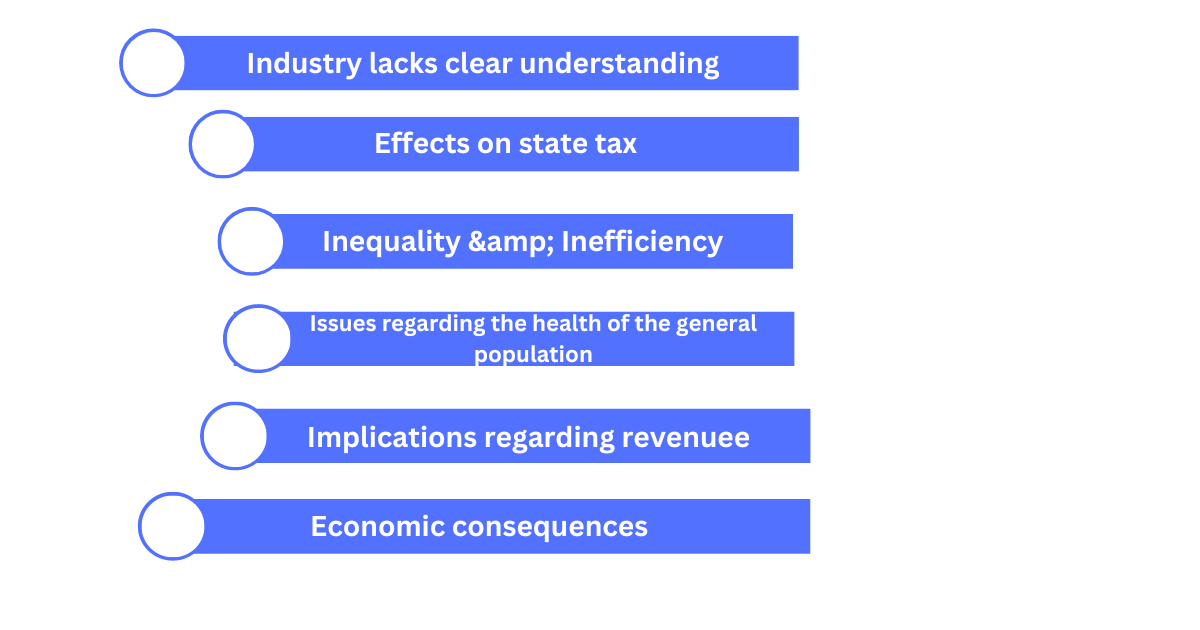
The recent ruling made by the 52nd GST Council meeting causing an exemption of GST on Extra Neutral Alcohol (ENA) employed in alcoholic beverages has led to considerable deliberation and conversation. This decision is significant because even though the goods and services tax (GST) does not include alcoholic drinks for people, taxing ethyl alcohol (ENA) can have significant impacts. In this article we will get to know about the concerns and implication of ENA exemption.
| Table of Contents |
Meaning of Extra Neutral Alcohol
ENA full form is Extra Neutral Alcohol. It is a type of ethyl alcohol or ethanol that has been extensively purified and has no impurities or undesirable tastes. To ensure maximum purity, it is created by undergoing processes such as distillation and rectification. ENA is widely utilized in the production of alcoholic drinks, beauty products, medicinal substances, and as a solvent in industrial applications.
Meaning of Exempted items as per GST
Items that are “exempted” under GST are goods and services for which no Goods and Services Tax (GST) is applicable. In simpler terms, you don’t have to pay tax on these items. The GST on Extra Neutral Alcohol exemption is a deliberate decision by the government to either support certain sectors, make essential goods more affordable, or for other specific reasons. When a product or service falls into the exempt category, it means you won’t see any GST added to its price.
Consequences of tax exemption on Extra Neutral Alcohol
No tax is imposed on Extra Neutral Alcohol (ENA) used in alcoholic beverages. The choice to exclude ENA from taxation for alcoholic beverages, despite alcohol for human consumption still not being subject to GST, has important consequences. This choice implies that the indirect tax imposed on ENA, a vital component in alcoholic drinks, cannot be balanced against state taxes on the product.
- The industry lacks clear understanding: The issue had been causing confusion within the industry, and there was a strong desire for clear information. Businesses may face confusion and difficulty in following tax regulations due to the lack of precise guidelines.
- Effects on State Taxes: The choice to exempt ENA from taxation impacts the charges imposed by the government on the end alcoholic product. This suggests that the states might not receive the potential income they could use for their important development projects and services.
- Inequality and inefficiency: The choice results in an imbalance within the tax framework. The alcoholic beverage industry enjoys a tax exemption on essential ingredients, unlike other sectors, which could result in an imbalanced taxation environment. This practice can be viewed as ineffective and unjust.
- Issues regarding the health of the general population: As ENA, which is an alcoholic beverage, is exempt now, it will lead to low alcohol prices and resultantly more consumption of alcohol that will affect public health.
- Implications regarding revenue: The choice could potentially result in financial consequences for both the national and regional governments. The government budget will also get impacted as this will lead to loss in tax revenue and the government’s capability to finance essential services will also be effected.
- Economic consequences: The choice to not impose taxes on ENA raises concerns regarding the soundness of this economic decision. Promoting a strong and varied economy may not be the most advantageous approach.

Takeaway
To sum up, the choice to not impose taxes on ENA utilized in alcoholic beverages, while leaving untaxed alcohol for human consumption, can be viewed as troublesome for several reasons. These concerns involve matters of clear communication, equality, the well-being of the public, generating income, and effectiveness in the economy. The decision is being criticized because people believe in the importance of having a tax system that is fair and transparent, and benefits both businesses and society in general.


